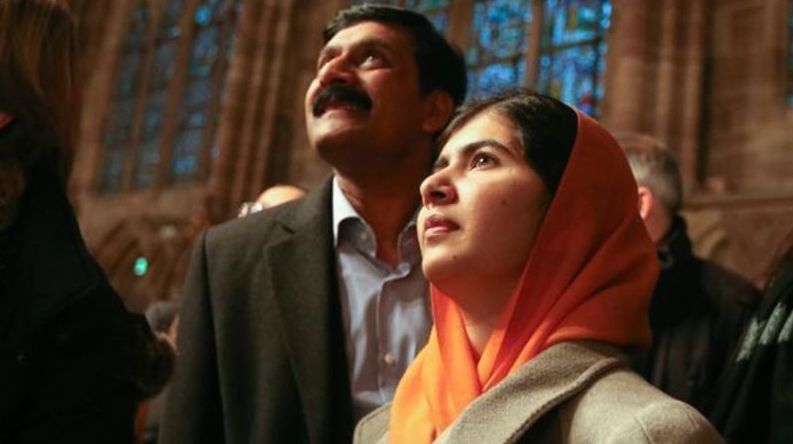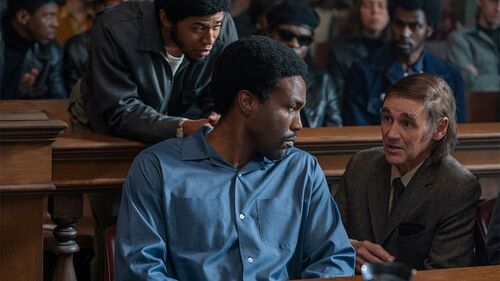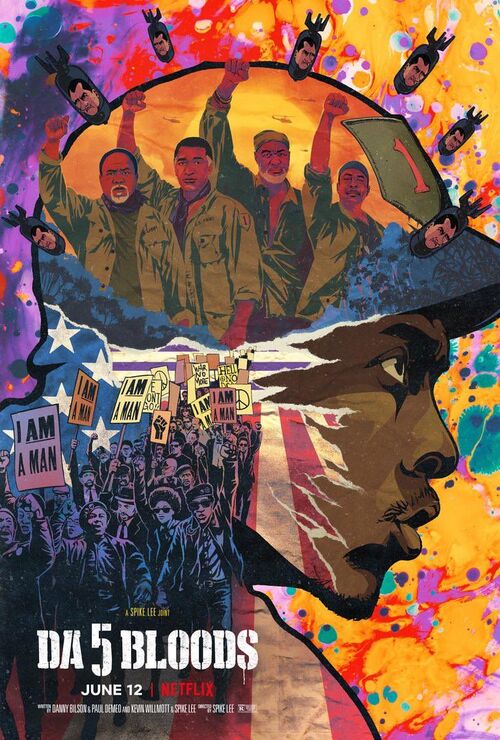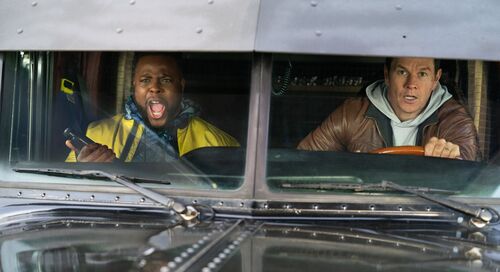
He Named Me Malala
 “What’s the first documentary you saw in theatres Delali?” My answer to that question will always be He Named me Malala and I know that’s some petty smugness but no one can take that away from me. The nature of business in our cinemas means you regularly find only the big budget mainstream movies screening from week to week. Rarely will a truly important and humanist film make it to the big screen. This week happened to be one of those rare weeks with the welcome presence of Davis Guggenheim’s documentary narrowing in on the truly stirring story of Malala Yousafza.
“What’s the first documentary you saw in theatres Delali?” My answer to that question will always be He Named me Malala and I know that’s some petty smugness but no one can take that away from me. The nature of business in our cinemas means you regularly find only the big budget mainstream movies screening from week to week. Rarely will a truly important and humanist film make it to the big screen. This week happened to be one of those rare weeks with the welcome presence of Davis Guggenheim’s documentary narrowing in on the truly stirring story of Malala Yousafza.
By this time I presume a ton of us are well aware of who Nobel Laureate Malala Yousafzai is and her heroic battle for female education and overall gender equality. But Guhhenheim’s documentary does give us the side of Malala people like myself do not get to see: her loving family of five, the snitching younger siblings, her adjustment to the British school system, her teenage self crushing over the likes of Brad Pitt and Roger Federer and snippets of her childhood in Pakistan. Take out the globe trotting activism and she comes off as quite the ordinary teenager. She is no ordinary teenager, as we know. She has already called out the likes of Barack Obama on policy and she has quite the future in world politics I reckon.
The crux of this film resides in the title “He Named Me Malala” as this film gives some insight into the drive of this teenage girl and the role the “he” (her father Ziauddin) played in forming the woman we know. The film opens with a sequence recounting a battle between the British and her descendants in Afghanistan and the pivotal role folk heroine Malalai of Maiwand played. This is firmly in line with the lore of Yaa Asantewaa. The difference here is Malalai of Maiwand probably wasn’t royalty, she wasn’t as old as the queen of Ejisu, and she directly sacrificed her life in the name of liberation. There is an air of predestination in the name Malala and Ziauddin even ponders if his christening of Malala with this culturally tragic name played a part in the turn her life took with the harrowing assassination attempt by the Taliban in 2012.
As a person of faith I appreciate the power in names and the more spiritual elements we hold on to but that is always half the narrative. Those that stand up to be counted understand this. Malala understands this. She makes it clear she chose this life. She wasn’t born articulate. This intelligent girl worked at it. Ziauddin even sells himself short by throwing in the predestination narrative. It takes a special type of upbringing to mould a girl with such conviction like Malala’s. Ziauddin himself put his life on the line in the name of conviction before Malala and he was a target of the Taliban before her. His zeal and idealism obviously rubbed off on her. Malala indeed notes how she grew up in genuine awe of her father’s charisma and oratory skills. Ziauddin’s role in his daughter’s life cannot be overstated enough.
The film doesn’t dwell on the horrid events of the Taliban assassination attempt. I am in true awe of the bravery exhibited on her part stemming from an area of love and conviction that brings on the acts of violence. Malala makes us understand she harbours no resentment towards her attackers. “Islam teaches us humanity, equality and forgiveness” she says. Guhhenheim doesn’t shy away from tying Malala to her Islam faith. She is actually on the conservative spectrum of Islam going by virtue of her upbringing, and this puts into perspective the more extremist inclinations that look to side-line the female gender.
There is a sequence in the film that really upset me. There is media footage from a vox pop that has some Pakistanis sharing their sentiments towards Malala. She is a voice of the west we hear. She should have come back home. She is just lucky. Anyone who survives a bullet in the head is undoubtedly lucky. On the question of luck, the rest of us are the ones with the good fortune. Without the cycle of news surrounding the attempt on her life we probably never hear her voice. She has always had a voice, mind you, and a message, and she was willfully risking her life in the name of what she believed in. It took a bullet in the head to tune the world’s ears to her message. The world is a better place because of that.
Again I say, this is an important documentary film that opens our eyes to an exceptional individual. We have here one of the rare occasions that the confluence of violence and love birthed more of the latter. Malala will not be fazed. We have here a portrait of true bravery inspired by true humanism and a desire to see a better world for the female gender.


